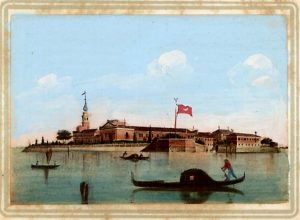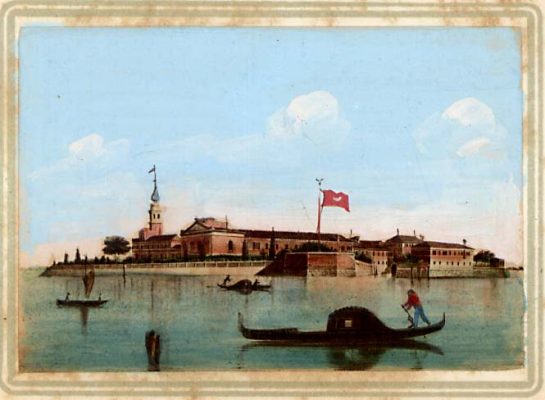The Mekhitarists, also known as the Mechitarists or Mechitharisten (Benedictine Congregation of the Mechitarists), are a Catholic religious congregation of Armenian monks. Founded in the 18th century by Mekhitar of Sebaste, they have made a significant impact on Armenian scholarship, culture, and literature. The Mekhitarists have played a vital role in preserving the Armenian language and history, ensuring the continuation of Armenian traditions for generations to come.
Founding and History

Mekhitar of Sebaste, born in 1676 in Sebaste, Ottoman Empire, envisioned a monastic order that would foster the spiritual and intellectual revival of the Armenian people. In 1701, Mekhitar and a group of followers formed the Mekhitarist Congregation in Constantinople (now Istanbul). Mekhitar and his fellows soon left the Ottoman Empire and founded a monastery in Methoni at the southwestern point of the Peloponnese, which was then Venetian.. They subsequently moved to Modon and finally settled in Venice, where the Armenian Catholic Monastery of St. Lazarus was established in 1717.
St. Lazarus Island in Venice

The Monastery of St. Lazarus became the heart of Mekhitarist activities and a prominent center for Armenian studies. The island developed into a vibrant intellectual community, featuring a library, printing press, and museum. The Mekhitarists’ printing press, initiated in 1789, played a key role in disseminating both ancient and modern Armenian literature and religious texts.
Impact on Armenian Scholarship and Culture
The Mekhitarists have made long-lasting contributions to the conservation and development of Armenian culture through their work in education, language, and literature. Their influence on Armenian identity has been profound, and their achievements include:
- Publishing: The Mekhitarist press has produced a vast array of books, journals, and periodicals in Armenian, Latin, French, and Italian. This has facilitated the widespread distribution of Armenian literature, religious texts, and works on history, linguistics, and natural sciences.
- Language and Literature: The Mekhitarists have been instrumental in preserving the Armenian language by creating dictionaries, grammar books, and linguistic studies. They have also contributed to the resurgence of Armenian literature by translating classical works and promoting contemporary authors.
- Education: The Mekhitarists have founded schools in several countries, offering education in the Armenian language, culture, and religion. These schools have been crucial in fostering and preserving Armenian identity among the diaspora.
- Cultural Heritage Preservation: The Mekhitarists have collected, cataloged, and conserved numerous Armenian manuscripts, artifacts, and artworks, contributing to the protection of Armenia’s rich cultural heritage.
The Mekhitarists have played a critical role in the preservation and promotion of Armenian culture and scholarship. Through their dedication to education, language, and literature, the Mekhitarists have made considerable contributions to Armenian history, allowing future generations to continue to appreciate and honor their cultural legacy.




